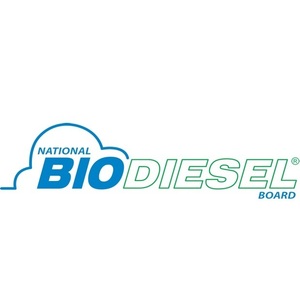National Biodiesel Foundation receives DERA grants for 2021

October 28, 2020
BY National Biodiesel Board
The National Biodiesel Foundation was awarded two U.S. EPA grants through the 2021 Diesel Emissions Reduction Act program. The first is in partnership with the District of Columbia Department of Public Works and DC Department of Water. The second is with the Iowa Department of Transportation. The Foundation is also partnering with Optimus Technologies and Renewable Energy Group on projects supporting the purchase of new vehicles equipped to run on 100 percent biodiesel (B100).
The DC project will support the purchase of 24 short-haul utility replacement vehicles equipped with Selective Catalytic Reduction. The Iowa project will replace a multi-purpose vehicle in both Ames and Des-Moines. All replacement vehicles will use Optimus Technologies’ Vector system, allowing the vehicles to operate exclusively on 100 percent biodiesel to optimize fuel savings, increase performance, and reduce emissions. The projects include an educational effort to persons and organizations owning and operating the fleets and public outreach conducted through local partnerships.
"We are excited to be able to work with DC Public Works, DC Water, and the Iowa Department of Transportation to reduce emissions in their cities," said Tom Verry, executive director of the Foundation, "Utilizing Optimus technology on the vehicles will allow them to fuel with higher biodiesel blends and provides a future of clean and sustainable diesel.”
Advertisement
Advertisement
DC Water and Sewer Fleet Director Tim Fitzgerald added, “The thought leaders at DC Water welcome this award and are working hard with our partners to increase the diesel emissions reductions in the area. This is a good legacy and a great way to help improve the future we leave for our children.”
“We're proud to partner on these EPA and Foundation projects with sustainability leaders from across the country. These projects expand the use of 100 percent biodiesel and showcase biodiesel's ability to assist fleets in achieving carbon neutrality today for the most severe-duty applications, like snow removal and refuse collection vehicles,” said Colin Huwyler, CEO of Optimus Technologies. “Optimus’ technology enables these fleets to achieve a larger carbon reduction than an equivalent electric vehicle, while at the same time utilizing their existing vehicle specifications.”
Advertisement
Advertisement
Renewable Energy Group is also a project partner and is providing the B100 refueling infrastructure for the fleets. Community engagement will be done through coordination with fleet partners and community leaders. In DC, the Metropolitan Washington Council of Governments and Greater Washington Regional Clean Cities Coalition will provide outreach and education. In Iowa, the Iowa Biodiesel Board and Iowa Renewable Fuels Association will assist in promoting the results and benefits of the Iowa DOT vehicles.
Made from an increasingly diverse mix of resources such as recycled cooking oil, soybean oil and animal fats, biodiesel and renewable diesel are better, cleaner fuels that are available now for use in existing diesel engines without modification. The Foundation works with industry to expand the use and application of biodiesel.
Consider support the Foundation through a donation by visiting the website. https://www.biodieselfoundation.org/home
Related Stories
The USDA has announced it will delay opening the first quarterly grant application window for FY 2026 REAP funding. The agency cited both an application backlog and the need to disincentivize solar projects as reasons for the delay.
Neste and DHL Express have strengthened their collaboration with the supply of 7,400 tons (9.5 million liters) of neat, i.e. unblended, Neste MY Sustainable Aviation Fuel to DHL Express at Singapore Changi Airport starting July 2025.
CoBank’s latest quarterly research report, released July 10, highlights current uncertainty around the implementation of three biofuel policies, RFS RVOs, small refinery exemptions (SREs) and the 45Z clean fuels production tax credit.
The U.S. Energy Information Administration maintained its forecast for 2025 and 2026 biodiesel, renewable diesel and sustainable aviation fuel (SAF) production in its latest Short-Term Energy Outlook, released July 8.
XCF Global Inc. on July 10 shared its strategic plan to invest close to $1 billion in developing a network of SAF production facilities, expanding its U.S. footprint, and advancing its international growth strategy.
Upcoming Events










